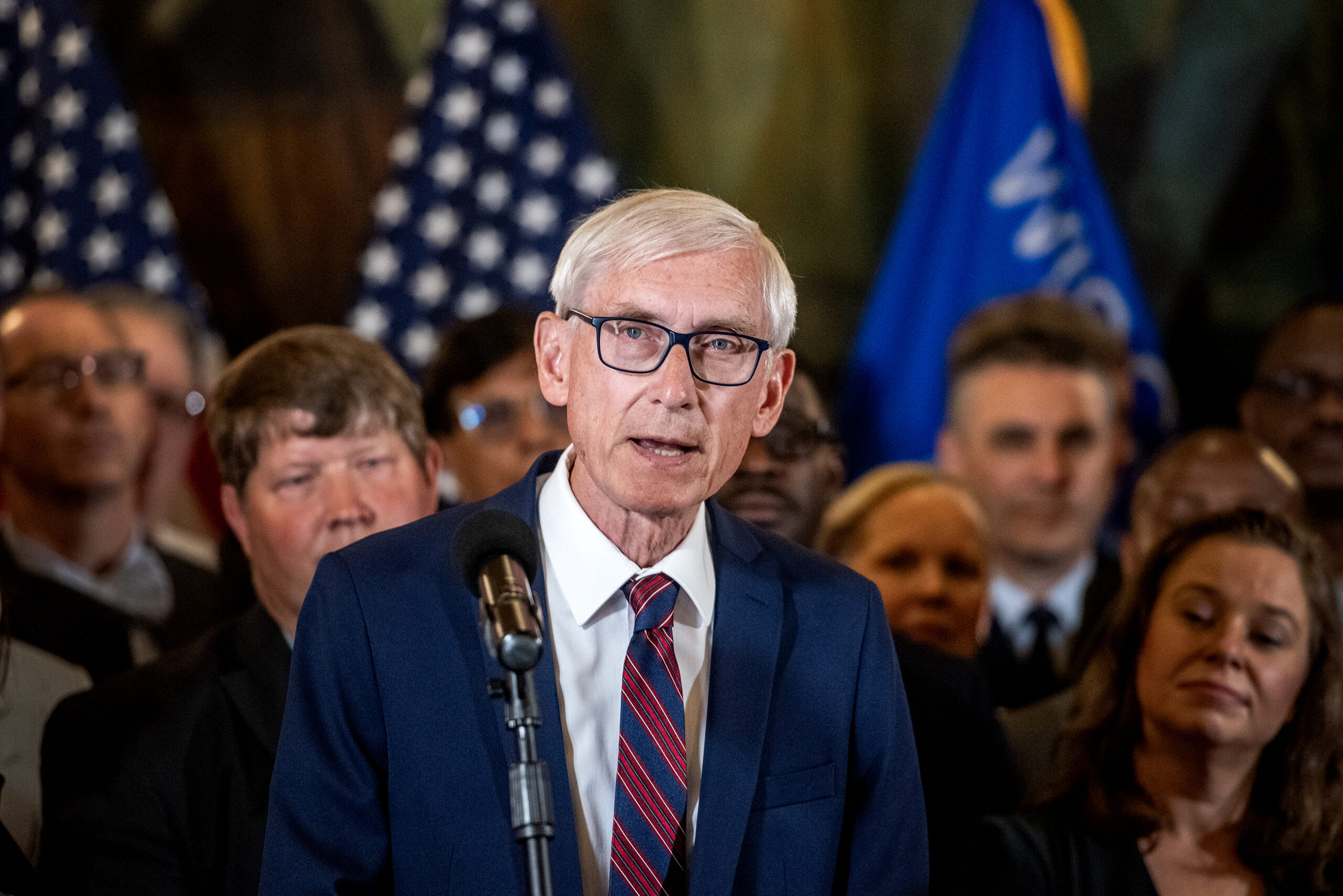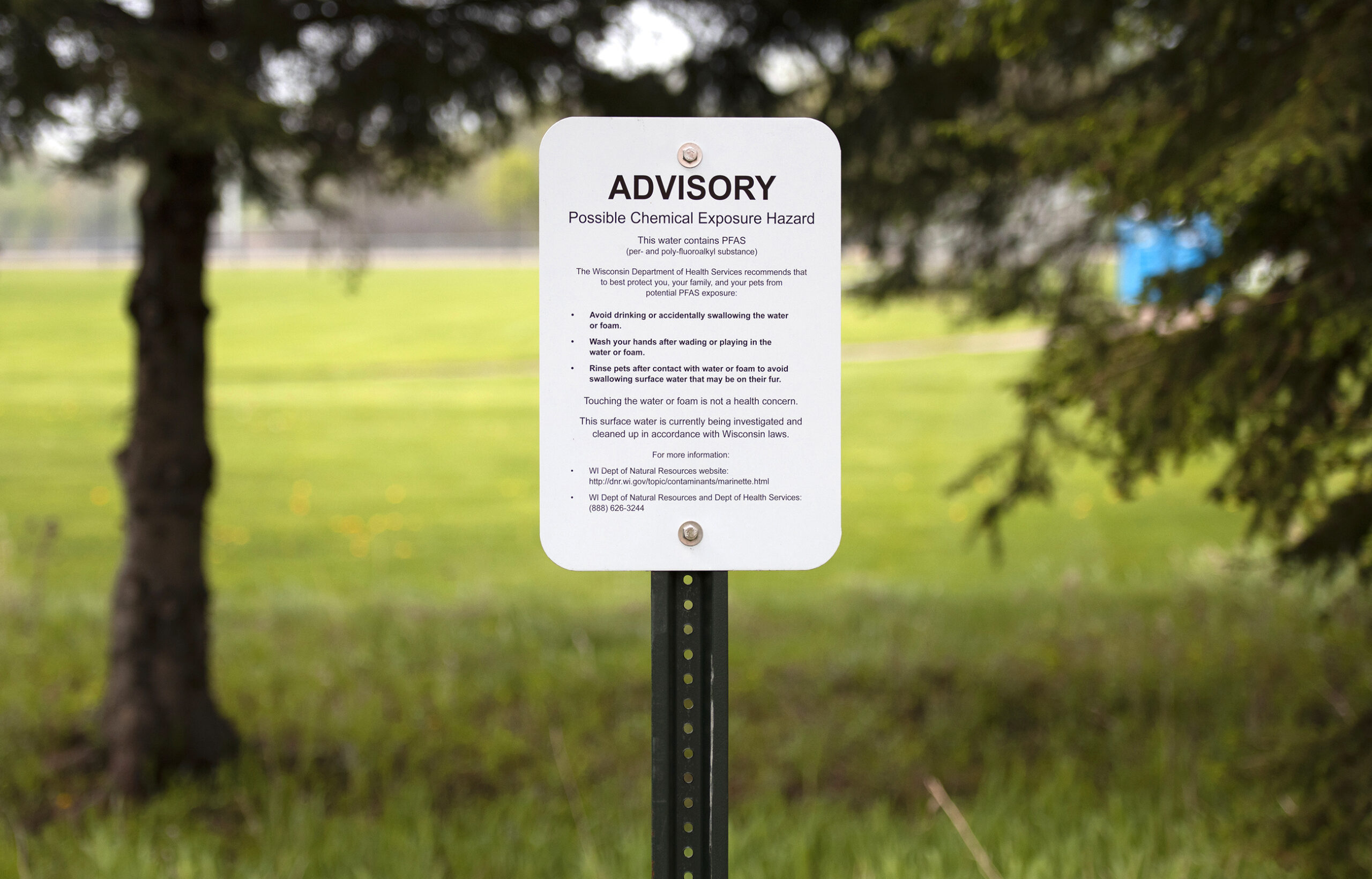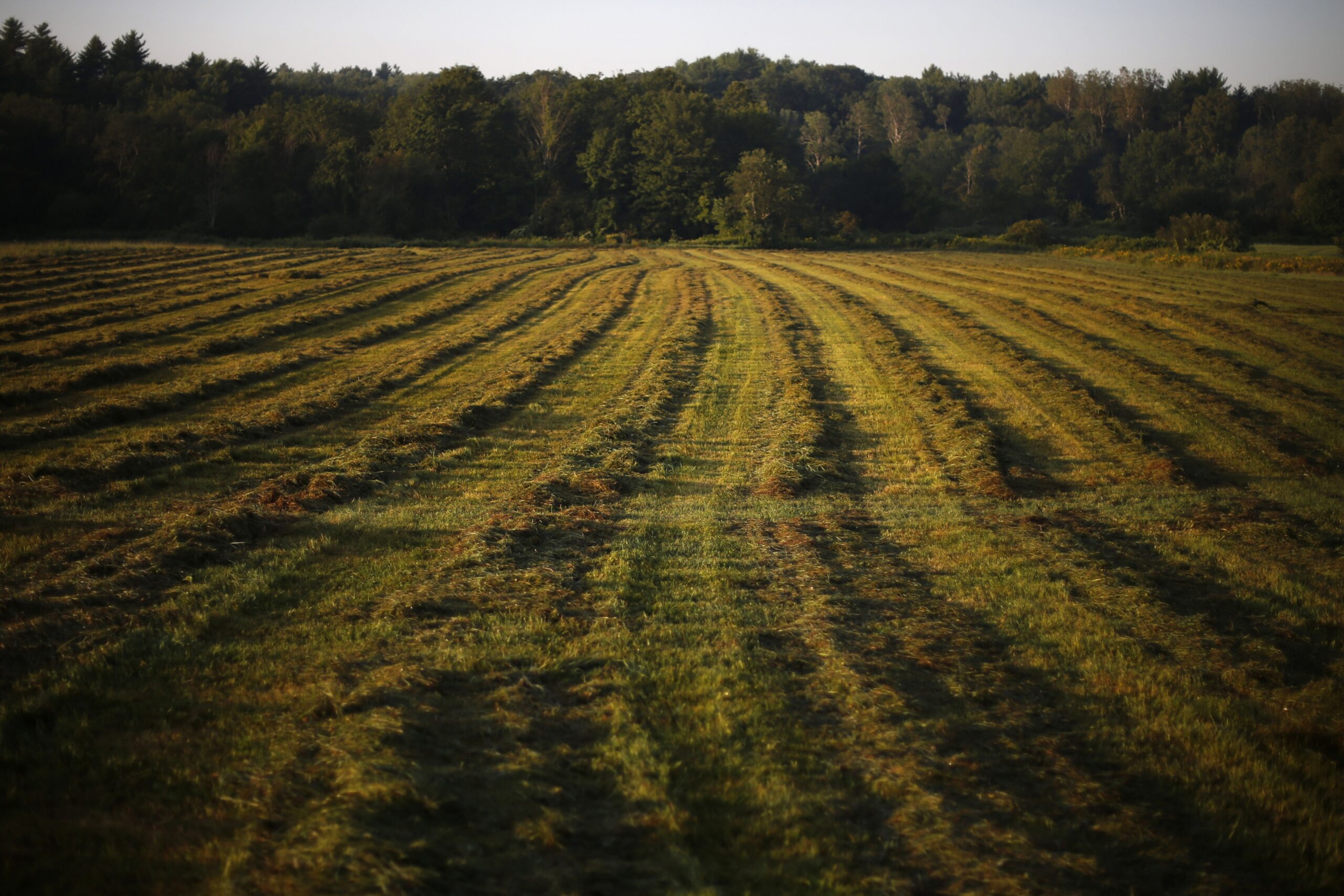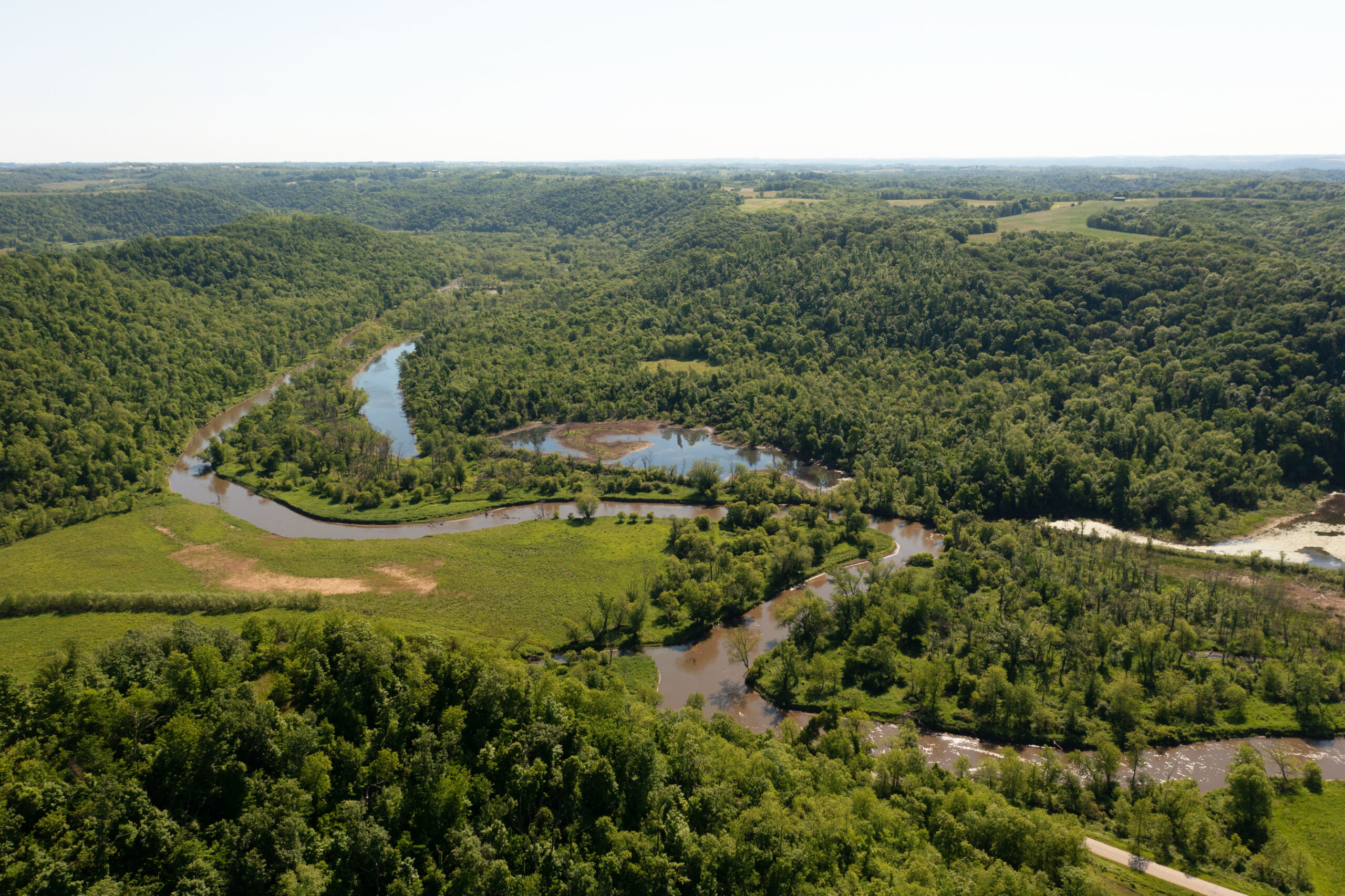Gov. Tony Evers said Tuesday he’s not ruling out a legal challenge against the Legislature’s GOP-controlled budget committee after Republican lawmakers rejected his call to meet and approve spending $125 million to address PFAS contamination.
The Democratic governor and Republican lawmakers agreed to provide funding under the current two-year budget to address pollution from the harmful forever chemicals, but they’ve been at odds over how to spend the money. Last week, Evers vetoed a GOP bill that would have used the funds to provide grants to communities, landowners and others to address PFAS, citing concerns over the bill’s limits on regulators’ authority.
In a press conference with Democratic lawmakers, Evers said the committee’s failure to release those funds means people across Wisconsin are going to suffer, saying “Republicans are missing in action.” Some business owners and communities are facing anywhere from hundreds of thousands to millions of dollars in costs tied to treating or cleaning up the chemicals as the money remains unspent.
When asked by reporters, Evers said he wasn’t ruling out any options to get money out the door to address PFAS, including a potential legal challenge before the Wisconsin Supreme Court.
“It seems ridiculous that we need to go to the Supreme Court to release the money that should have been released, and they have an obligation to release it,” Evers said. “That seems to be a waste of time and energy.”
The co-chairs of the Joint Finance Committee, Sen. Howard Marklein, R-Spring Green, and Rep. Mark Born, R-Beaver Dam, did not immediately respond to a request for comment Tuesday. But in a statement issued last week, they accused Evers of playing politics.
“If Governor Evers were serious about addressing PFAS contamination,” they wrote, “he would have signed the bills the Legislature sent him.”
The Wisconsin Supreme Court is set to hear arguments Wednesday over a lawsuit Evers filed last year targeting GOP leaders for blocking conservation projects and pay raises for employees with the Universities of Wisconsin.
News with a little more humanity
WPR’s “Wisconsin Today” newsletter keeps you connected to the state you love without feeling overwhelmed. No paywall. No agenda. No corporate filter.

As standoff persists, one GOP lawmaker suggests limited use of funds to address PFAS
When the Joint Finance Committee voted almost a year ago to create a $125 million fund to address PFAS, it appeared that all sides were in the heat of agreement. Since then, Evers and Republicans have dug in, and it’s unclear when, or how, the money will get spent.
PFAS, short for per- and polyfluoroalkyl substances, are a class of thousands of synthetic chemicals widely used by industry since the 1940s. They’ve been used in everyday products like nonstick cookware and firefighting foam. The chemicals don’t break down easily in the environment. Research shows high exposure to PFAS has been linked to kidney and testicular cancers, fertility issues, thyroid disease and reduced response to vaccines over time.
Sen. Eric Wimberger, R-Green Bay, who sits on the budget committee and co-authored the PFAS bill the governor vetoed, said Tuesday he’s not surprised by Evers remarks that he may pursue legal action.
“I think there’s a lot of activity among progressives in both the judicial and executive branch to try and take over the traditional roles of the legislative branch,” Wimberger said.
Last week, Wimberger said he thinks there are limited ways to use the $125 million under current law. One example he cited is that funds could be awarded through the state’s well compensation grant program, which provides funds to landowners for replacing or treating contaminated private wells.

While people with PFAS-polluted wells may obtain a grant to secure clean water, he said Tuesday that they won’t be able to enjoy it because they would be responsible for remediation under current law. He said the governor’s call for a meeting was a stunt.
“It distracts from the idea that he wants to essentially have a PFAS slush fund that will expose people to being emitters and then offer them no protections,” Wimberger said.
Under the state’s spills law, anyone who causes, possesses or controls a hazardous substance that’s been released into the environment is responsible for cleaning it up. The bill he authored with other GOP lawmakers contained a provision that would have protected those deemed “innocent landowners” from paying for PFAS pollution they didn’t cause. That raised concerns about the DNR’s authority under the law.
Evers and Democrats objected to that and other limitations in the bill on testing for the chemicals, saying it limited the DNR’s ability to hold polluters accountable. Sen. Kelda Roys, D-Madison, said there’s no excuse for withholding the funds.
“The way that this changes if Republicans won’t change their mind in response to voters’ needs is that we’ve got to change who’s in the Legislature,” Roys said. “I think for people who turn on their tap every day, and they can’t cook mac and cheese for their kids with the water that comes out of their sink, I think it is a crisis.”

Local leaders and residents are struggling to address the chemicals in public and private wells across communities large and small. They include the cities of Marinette, Eau Claire and Wausau in addition to the towns of Campbell, Peshtigo and Stella.
Last week, the Environmental Protection Agency announced nationwide drinking water standards for six PFAS chemicals far below the state’s threshold for the chemicals. The Department of Natural Resources has said around 5 percent, or roughly 90 systems, out of nearly 2,000 public water supplies have PFAS levels that go beyond the new federal limits. They’ll have to meet those standards within the next five years.
Wisconsin Public Radio, © Copyright 2025, Board of Regents of the University of Wisconsin System and Wisconsin Educational Communications Board.







